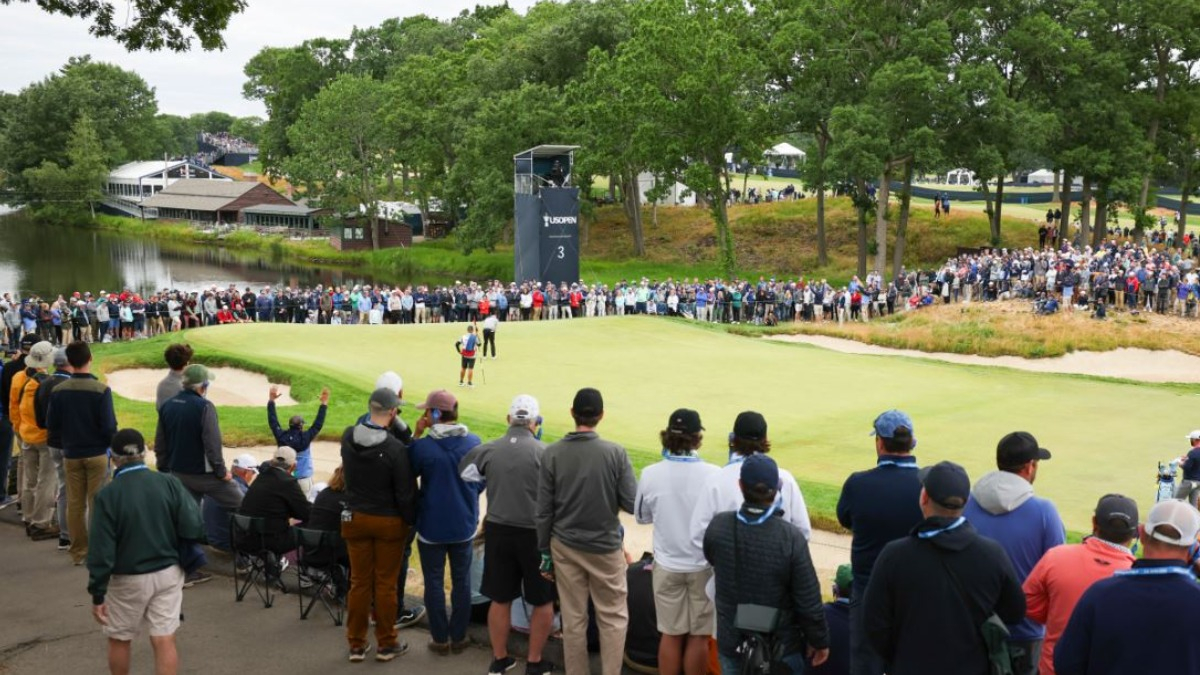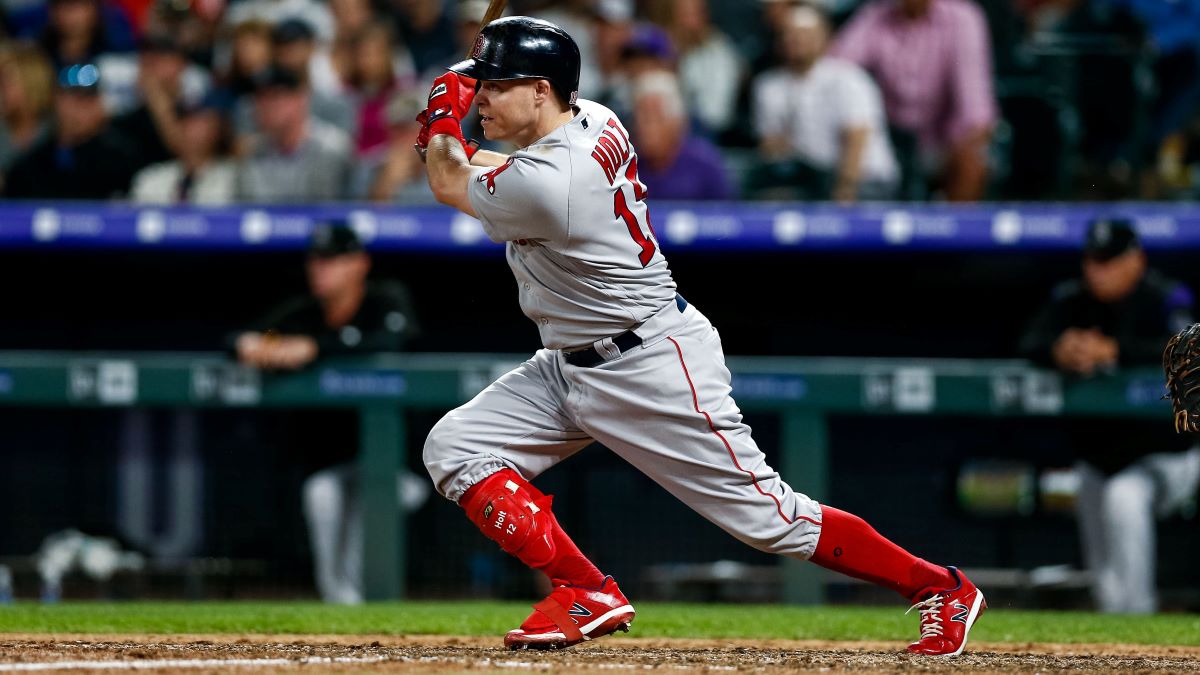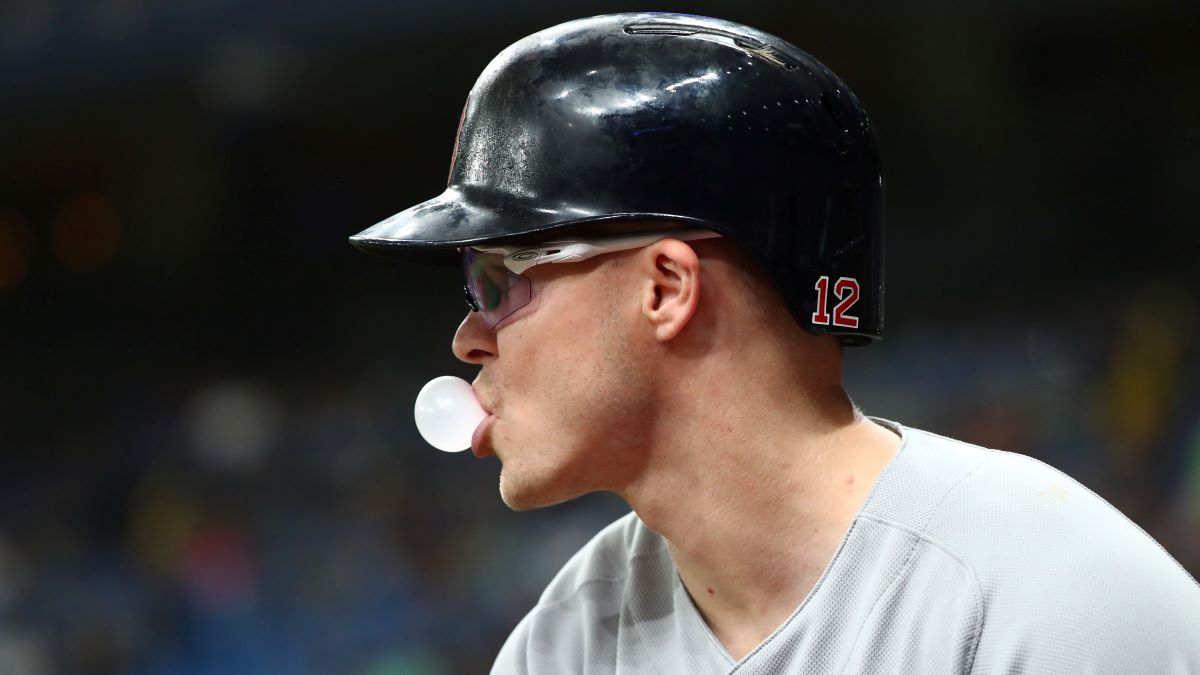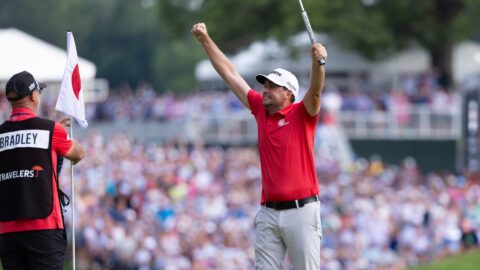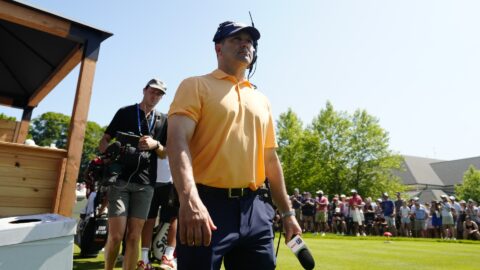BROOKLINE, Mass. -- The spectacle of Monday at the U.S. Open seems like forever ago.
Matt Fitzpatrick will forever be remembered as the 2022 U.S. Open champion, as he held off the likes of Will Zalatoris and Scottie Scheffler to win his first career major. In the process, he solidified himself as Boston's best Brit, winning a major on the same track he won the 2013 U.S. Amateur tournament, too.
No one will ever be able to remove Fitzpatrick's name from the record books or Wikipedia. But when the story of the 2022 U.S. Open is told, just as much if not more attention to the retelling of the tale will be devoted to what could ultimately be one of the most important weeks in modern golf history.
There's a very clear fracturing within the sport right now thanks to the LIV Golf tour, a Saudia Arabian-backed renegade league that hopes throwing millions and millions and millions of dollars at the world's best golfers will help the world see the historically problematic nation in a new light.
Whether the Saudis ultimately find success in that venture is unknown, and it really doesn't matter. These are pockets deeper than anyone can imagine. But in the process, the professional golf world as we know it might be flipped upside down.
The USGA said earlier this month it would allow LIV golfers to play if they had already qualified, marking the first time since LIV's London launch that players from both tours would battle it out on a neutral site. As such, it dominated the conversation for much of the week, starting Monday morning with Phil Mickelson's half-hearted explanation (with much respect, of course) for his LIV lust.
The circus was off and running with anyone who's anyone being asked to weigh in on the possibility of more high-name defectors following the likes of Mickelson, Dustin Johnson, Bryson DeChambeau and Patrick Reed to greener pastures. Brooks Koepka, whose brother Chase plays on the LIV Tour now, got testy. Others, like Jon Rahm, further pledged their fealty to the PGA Tour.
It was awkward. And then the golf started.
A magical four days of championship golf upstaged the controversy. A triple-threat match among Fitzpatrick, Will Zalatoris and Scottie Scheffler broke out on the hilly fields of Brookline on Sunday. The LIV elephant quietly left the room, as the roars bounced off The Country Club's signature rock outcroppings and green-side chocolate drops.
Golf fans were treated to yet another spectacular major golf tournament at TCC, an instant classic that reminded us all of just how captivating the sport can be when played at the highest level.
The problem, of course, is that happens far too infrequently on the PGA Tour or anywhere else, really. It's an oversaturated, watered-down and sometimes downright stale product. That alone makes it much easier for even some of the biggest names to make the jump or contemplate life without the Tour. We might see even more commitments as early as Monday with the next LIV event fast approaching at the end of the month.
Something has to give, and change is very much in the air. The PGA Tour must and will make changes in an attempt to make itself more appealing. And the Tour probably has to hope the USGA (and/or Augusta National or the R&A) does something to, if not ban, at least make it far more difficult for the LIV boys to qualify.
When mainstream professional golf is at its best, like it was this week, legacies are on the line. In the end, it might not matter. The money might be too much to ignore, and what's the price tag for something like a legacy anyway? On the other hand, does an unforgettable week at a historic golf course play to the competitive nature of the world's best golfers?
We'll get our answers soon, and one way or another, we'll almost certainly look back at this week in Boston, the birthplace of the American Revolution, as an integral piece of professional golf's own revolution.

